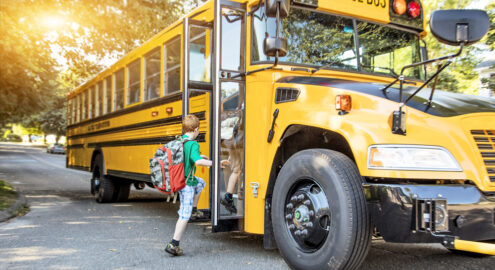Continuity | Risk
Emergency Planning: The 10 Organizations You Should Build a Relationship With Before a Crisis

Most companies plan for emergencies, but they might be overlooking something important while they’re planning — the organizations that respond when an incident occurs.
Think about your own emergency planning. You’ve likely developed policies, plans, and procedures that cover a wide range of potential crises. But, have you talked to the key stakeholders who’ll be involved if an incident actually occurs? Have you reached out to police and fire services? Have you introduced yourself to the local EMS organization?
The time to develop those relationships isn’t when an emergency is happening; it’s beforehand when you’re working out your plans. There are several reasons for this. For one thing, local emergency services can’t know what your plans and procedures are until you share them. Getting first responders involved early can help you build a relationship before you have to call in a crisis.
Which organizations should you reach out to when you’re designing your emergency policies and procedures? While that often depends on the emergency you’re planning for, below is a list of some stakeholders who can add real value to your emergency plans.
Partnerships with police and fire are critical during incidents like active shooters
Reach out to these organizations during emergency planning
Emergency management: During disaster planning, local emergency management should be your first call. Emergency management is a community’s organization and management of all its resources for dealing with crises and disasters. While all communities organize their services differently, Emergency Management works with police, fire, local EMS services, and relevant government agencies.
Sometimes Emergency Management is operated by a municipal government, sometimes by the police department, and sometimes by county or a group of towns. In some cases, Emergency Management will be a one-person department who liaises with first responders in case of an emergency. A good first step is to call your local government and ask for the emergency manager. If your community doesn’t have an emergency manager, your next call should be to your local first responders.
Police: You want to involve the agencies who would come to your site if there were an emergency, so it goes without saying that you should be talking to the police department, who will likely respond to almost any emergency that occurs at your site. The police should be familiar with both your site and your head of security before an incident.
Fire: The fire department should also be familiar with both your site and your existing fire prevention systems. More importantly, often police and fire have input that can improve your emergency plans — they often have suggestions for measures you may not have thought of, and sometimes have templates for plans that they can share with you.
EMS: EMS should be acquainted with your site as well in case of any disasters or even basic health-related emergencies.
Public Health: If there is an emergency related to infectious disease or an environmental problem, the local Department of Public Health will be involved.
Healthcare organizations: In case of a health-related crisis, you should be familiar with local hospitals, and they should be familiar with your organization.
Utility companies: Disasters disrupt utilities. Check in with your local utility companies to find out what their disaster plans are, and to share yours.
Financial institutions: You probably have insurance, but you should still communicate with your bank about what would happen in case of a disaster, like a major power outage that would make it difficult to access funds.
Postal and package carriers: In the event of an emergency, what would happen if your mail delivery were disrupted? Communicate with mail deliverers beforehand, informing them of alternate addresses and asking how they handle delivery in a crisis.
The community: Your organization might be one that affects your local community. If you experience a disaster, how will you communicate necessary information to the people who live and work in your area.? Work with either the community itself, the press, or emergency management to develop a communication plan.
Potential business partners: When you’re planning for a disaster, you have to think about continuity planning. That means keeping your business running no matter what happens. Think of the services your business needs to run. Will you need another site to operate from? Waste removed? Would you need back-up equipment or another location? Make plans with dealers to purchase or rent those items before they’re needed.
Your employees won’t stop an assault at work
The most important question to ask your partners during planning
It’s always important to know what you don’t know.
When you’re working with a partner organization to create a preparedness plan, ask them to look at your plan and tell you what issues you haven’t taken into consideration.
Chances are, they’ll spot holes in your plan based on situations they’ve already responded to. They’ll be able to tell you what they’ve experienced, how they responded, and how your plan can be adjusted and improved.
What does your emergency preparedness plan look like?
Not every organization has a good preparedness plan. We at Circadian Risk want to come up with the best free emergency template possible for organizations who may not have one, but we need your help.
Do you have emergency plans or procedures you’re willing to share? We’d like to look at the best plans and policies and come up with an ideal preparedness template based on all the submissions we receive. Organizations that share their plans will receive a free copy of the template we develop.
To share your plan, or to learn more about this project, contact us.




